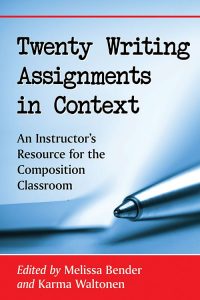Now that we’ve discussed the basics and how to get mentors, let’s talk about the mistakes students make:
Thinking that getting a good grade is enough.
Just because you got a good grade in my class doesn’t mean I like you. Assholes can do well on tests and essays. I’m not going to recommend that asshole, dooming the next person to being stuck with them for a while.
Conversely, I’ve had some students who didn’t get the highest grades get great letters–because I saw how much they worked, because we got to know each other.
Remember, too, that I’m not supposed to tell anyone your grade in the letter, so if I all know about you is that you got an A, but I have no further information to give, your letter will be a form letter.
Asking someone who can’t recommend you.
My friend Vanessa had a student ask her for a letter of recommendation after she caught him plagiarizing. He thought that because she hadn’t been mean to him in class–because she was a professional–that his transgression had been completely forgiven and forgotten (besides being sent to SJA).
Vanessa’s thought: but why in hell would I recommend a cheater?
I had a student ask me for a letter after failing my class. The student and I were friendly enough–she was failing because she wasn’t actually ready to be writing at the upper division writing level yet.
I was surprised when she asked me for a letter–while I could write about how generally cheerful she was, I didn’t have anything nice to say about her academic potential.
(I declined.)
The silliest example, though, comes from a total fuck up in my class. He was failing–his papers were awful, when he got around to turning them in, he failed all the reading quizzes, didn’t do the homework, and on the day he came to my office for a letter, he hadn’t been prepared for his class presentation.
He was floored when I said I couldn’t recommend him for our Washington program.
“I can’t recommend you.”
“What do you mean?”
“I mean, based on my experience, you’re a terrible student. So I can’t tell other people that you’re a good one.”
“I don’t understand.”
“If every time I ate at a restaurant, I got food poisoning, I would not recommend the restaurant to others. I can’t tell people that they want to work with you, based on my experience with you. Don’t you have a class in which you’re doing better? A teacher you have a better relationship with?”
“No.”
“Why did you ask me?”
“My roommate said to ask my English teacher because they write good.”
I didn’t correct his misapprehension that I was his “English” teacher, but I did get really snotty.
“I could write poetry about how you don’t do your work in my class. It would be beautiful. Is that what you want?”
Asking impolitely.
Don’t assume we owe you one. You are asking us for a favor.
Don’t ask over email, unless there’s no other way. For example, during this shut-down, I’ve had some email requests come in, but the students have been smart enough to apologize for having to ask me this way. Even then, it’s not enough to send a one-sentence email. You need to explain why, when, where, etc.
Don’t ask at the last minute. We expect at least a month’s notice.
There are exceptions, of course. Maybe you just discovered a scholarship or your other recommender died (I had to step in in a case like that.)
But you should know when your grad school application is due. Not asking for the letters until the week they’re due illustrates that you are not good at planning or time management and that you don’t respect our time. You’re not the only person wanting a letter–and they all tend to be due around the same time. If I know I have several due in the same week, I can make plans to get them done, but I don’t have the time or the will to add yours to the big pile if you ask late.
Being an annoying person.
This is different from being an asshole. And there are many ways to be annoying. Were you the student who, after your teacher said to the whole class that he couldn’t talk after class because he had to get across campus for another class, came up to him after every single class and said, “I know you gotta go, but . . .?”
Are you the student who argued about every little grade?
Are you the student who couldn’t seem to do any assignment on her own or who never read the syllabus before asking a question?
Are you the student who was always on his phone?
Are you the student who won’t take “no” for an answer about a letter?
Last year, a student emailed me for a letter request a week before the letter was due. We had never spoken. I told her I couldn’t write the letter, because I didn’t know her.
“Well, could we spend a few hours together this week then?”
Ummm . . . FUCK NO!
Not signing the privacy waiver.
Schools and programs ask you to sign a privacy waiver, meaning you won’t read the letter we write. The schools and jobs and programs want us to be honest.
If you don’t sign the privacy waiver, it’s a red flag.
Are you saying you don’t trust your letter writers? Your mentors? Why? What do they know about you?
Are you paranoid?
Are your letter writers afraid of you? Are they tired of you bugging them and so they’re just writing something to make you go away?





